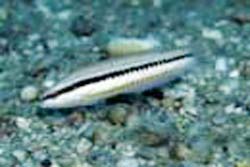The scientists have been able to lure tropical fish – similar to clownfish like film star Nemo – on to artificial reefs by playing recordings of fish and shrimp noises through underwater speakers. A paper in Science journal suggests the technique could be used to restock depleted fishing grounds near reefs, or to populate newly established conservation areas. The study, which focuses on damselfish and cardinalfish in the Pacific Ocean, also warns that ’unnatural’ noises created by shipping and d
A new University of Colorado at Boulder study indicates Earth in its infancy probably had substantial quantities of hydrogen in its atmosphere, a surprising finding that may alter the way many scientists think about how life began on the planet.
Published in the April 7 issue of Science Express, the online edition of Science Magazine, the study concludes traditional models estimating hydrogen escape from Earth’s atmosphere several billions of years ago are flawed. The new s
But Earth’s elusive mantle is a near miss
Scientists affiliated with the Integrated Ocean Drilling Program (IODP) and seeking the elusive “Moho”–the boundary, which geologists refer to as the Mohorovicic discontinuity, between Earth’s brittle outer crust and its hotter, softer mantle–have created the third deepest hole ever drilled into the ocean bottom’s crust.
Scientists had hoped to drill into Earth’s mantle, but found instead that their efforts h
New report on 25 most endangered primates shows mankind’s closest living relatives under threat around the world
Mankind’s closest living relatives-the world’s apes, monkeys, lemurs and other primates-face increasing peril from humans and some could soon disappear forever, according to a report released today by the Primate Specialist Group of IUCN-The World Conservation Union’s Species Survival Commission (SSC) and the International Primatological Society (IP
Despite the divergent evolutionary paths of dolphins and primates — and their vastly different brains — both have developed similar high-level cognitive abilities, says Emory University neuroscientist and behavioral biologist Lori Marino. She presented her latest findings on the evolution of and differences in brain structure between cetaceans (ocean mammals like whales and dolphins) and primates April 5 during the 14th annual Experimental Biology 2005 meeting in San Diego.
Marino&#

Dealing a new blow to the dominant evolutionary paradigm, Luiz Rocha and colleagues from the Smithsonian Tropical Research Institute, Harvard University the University of Florida and the University of Hawaii, report coral reef fish from neighboring habitats may differ more from one another than from fish thousands of miles away. An ecological speciation model for coral reef organisms may spur the development of a more synthetic treatment of speciation on land and sea.
Coral re